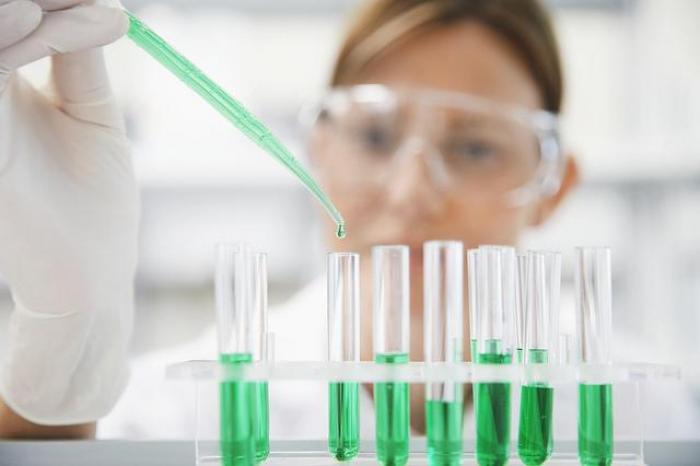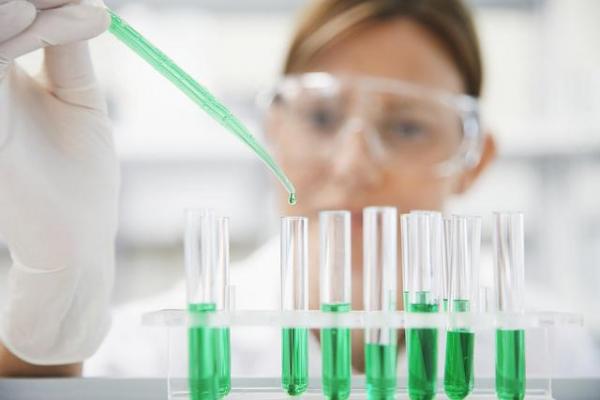
Chemical Engineering (with placement year) MEng
Master
In Bradford

Description
-
Type
Master
-
Location
Bradford
-
Duration
5 Years
-
Start date
Different dates available
The MEng in Chemical Engineering (with placement year) is shaped by the ongoing needs of industry, while focusing on the traditional disciplines of oil, gas and petrochemical production.
You’ll get the knowledge and hands-on experience you need to operate in a range of industry sectors, learning in a research-informed, multidisciplinary environment.
Your studies will give you a deep understanding of fundamental and advanced technical principles such as:
fluid mechanics
thermodynamics
mass and heat transfer
chemical reactions
process control
safety, health and environment
You’ll also gain practical experience with analytical tools, and the competencies required to apply this knowledge in industry.
A placement year in industry enables you to build contacts whilst developing your skills and professional confidence.
The first three academic years of the MEng programme share the same curriculum as the BEng. The final fourth academic year provides additional focused study, and enables you to emerge with a Master's degree.
Chemical Engineering at Bradford has extensive links to industry. Our Lecturers are actively working on research projects with industry, with recent research projects linked to leading pharmaceutical, oil, gas, petrochemical and advanced material engineering companies.
Chemical Engineering received 94% overall satisfaction in the National Student Survey 2017.
Facilities
Location
Start date
Start date
About this course
Typical offer: BBC / 112 UCAS points
Reviews
This centre's achievements
All courses are up to date
The average rating is higher than 3.7
More than 50 reviews in the last 12 months
This centre has featured on Emagister for 15 years
Subjects
- Quality
- Chemical Engineering
- Design
- Mathematics
- Mechanics
- Oil and Gas
- Gas
- Heat Transfer
- Thermodynamics
- Materials
- Appreciation
- Project
- Systems
- Technology
- Industry
- Engineering
- Petrochemical
- Petroleum
- GCSE Mathematics
- Production
Course programme
The modules for this course can be found in the latest programme specification.
The programme is intended to help graduates to develop the engineering, design, management and personal skills required to become professional Chemical Engineers and in doing so, also equip them for careers in other professions.
Year 1
- Engineering Mathematics (20 credits)
To develop mathematical knowledge, understanding and skills in fundamental topics of mathematics so that students can later build on these to describe, model, analyse and evaluate engineering problems using a range of mathematical techniques and appropriate software for calculations. - Computer Aided Engineering (20 credits)
To provide an appreciation of computer aided design, analysis and simulation methods over a range of engineering disciplines (Chemical, Civil, Mechanical and Medical) and to provide experience of the use of industry standard CAE tools through design, modelling, simulation, analysis of structures, processes, systems or components. - Materials Technology & Structural Mechanics (20 credits)
Provides an introduction to engineering materials and their properties, with particular reference to their manufacturing technology, selection and different industrial applications. - Skills for Engineering (20 credits)
The module is designed to provide a project based hands on team based module with integrates the learning from other modules during the first year. - Chemistry for Engineers (20 credits)
To introduce models describing bond formation between atoms and relate these to the physical chemical properties of simple molecules. - Fluid Mechanics 1 (10 credits)
To understand the basic concepts that describes the mechanical behaviour of fluids. - Thermodynamics (10 credits)
Thermodynamics is the study of energy, work and heat. In this module you will learn about the fundamental concepts of energy and how it relates to work, power and efficiency.
At the end of Year 1, students will be eligible to exit with the award of certificate of Higher Education if they have successfully completed at least 120 credits and achieved the award learning outcomes.
Year 2
- Further Engineering Mathematics and Statistics (20 credits)
To establish an appreciation and working knowledge of the premise that analytical (deterministic) and statistical tools are components of a larger integrated tool kit for addressing and evaluating multiple solutions to a variety of engineering-based problems. - Heat Transfer & Thermodynamics (20 credits)
This module applies the concepts of heat transfer and thermodynamics to real-world engineering processes such as the unit operations of chemical plants. - Mass Transfer Operations (20 credits)
This module examines the operation and design of separation processes, including distillation, gas absorption, solvent extraction and crystallisation. - Reaction Engineering (20 credits)
To deliver a comprehensive understanding of the methodology of linking chemical kinetics with material and energy conservation. - Financial and Project Management (20 credits)
Enable students to acquire a sound understanding of the financial and accounting principles, and apply these principles for decision making and control purposes in a commercial business environment. - Fluid and Particle Mechanics (10 credits)
This module is an introduction to fluid flow and particle mechanics with an emphasis on the fundamentals. - Chemical Thermodynamics (10 credits)
This module will equip you with understanding the application of thermodynamics in chemical reactions and physical changes of state of single and multi-compound systems.
At the end of Year 2, students will be eligible to exit with the award of Diploma of Higher Education if they have successfully completed at least 240 credits and achieved the award learning outcomes.
Year 3
- Design Project (Chemical Engineering) (30 credits)
You will apply elements of all core chemical engineering modules such as mass transfer, heat transfer, reaction engineering, control, process design, petroleum product engineering, thermodynamics, fluid-particles mechanics, safety health & environment, mathematics, etc. to carry out a substantial Chemical Engineering process design. - Six Sigma for Business Excellence (10 credits)
The students will be able to acquire a deep understanding of the theories and practices of six sigma and associated quality assurance and management principles, and directly apply them to a variety of product and service industries. - Petroleum Engineering (20 credits)
This module aims to give an understanding of the principles and basic practice of surface and sub-surface operations of oil/gas. - Control Engineering (20 credits)
This module provides a solid theoretical foundation for understanding feedback control system analysis and design in both the time and frequency domains. - Process Design (20 credits)
This module introduces you to the principles of Process Design, starting from knowledge of the chemistry involved and taking into account chemical, technical, environmental, safety and economic restraints. - Reliability and Safety Engineering (20 credits)
The students will be able to develop a detailed knowledge of the theories, principles and practices of reliability and safety engineering and apply these principles in the design, operation and maintenance of complex systems.
Students will be eligible for the award of Honours Degree of Bachelor if they have successfully completed at least 360 credits and achieved the award learning outcomes.
Final year
- Advanced Research Project (20 credits) – core
To enable students to develop their problem-solving skills by working on a medium size project in a research environment in the university. To allow the students to develop skill of writing a formal, academic dissertation and a conference paper. - Desalination Technology (20 credits) – core
This module provides you with a detailed technological understanding of strategically important issue of sustainable production of freshwater via desalination. - Material & Manufacturing Processes (20 credits) – core
To provide specialist knowledge of manufacturing methods used in the design and development of operations to process engineer materials with advanced properties, consistent attributes and with sound structural integrity. - Transport Phenomena (10 credits) – optional
This module put emphasis on understanding basic physical principles governing transport processes in chemical engineering. - Design Optimisation (10 credits) – optional
To establish an appreciation for the role of optimisation in modern engineering practice and to provide evidence for the premise that optimisation is one component of an integrated tool kit for addressing and evaluating multiple solutions to a variety of engineering-based problems. - Computational Fluid Dynamics (10 credits) – optional
To understand fundamental principles of the advanced numerical simulations in hydrodynamics. There will be an emphasis on developing practical skills to build numerical models to simulate free surface flows in practical contexts. - Upstream Production and Refinery Operations (20 credits) – core
You will be able to synthesise the right process configurations for any given well fluid and crude oil quality and also simulate/design the entire upstream petroleum and refining processes with the given product quality constraints as well as HSE (health, safety and environment) concerns. - Food & Pharmaceutical Processes Engineering (10 credits) – core
This module introduces you to fundamental principles along with the design of equipment such as fluid-particles settlers and centrifuges, filtration and crystallisation units and other specialised food and pharmaceutical processing equipment. - Polymer Engineering (20 credits) – optional
As part of the module you will perform a practical research project to reactively modify a polymer, produce test specimens from the new material and then characterise its properties. - Engineering Computational Methods (10 credits) – optional
To critically review the application of the Finite Element (FE) method as a tool for engineering analysis - Risk Management (10 credits) – optional
Acquire a deep understanding of the concepts and principles of risk management and its interaction with other management activities, and directly apply them in a range of product and service industries.
Students will be eligible for the award of MEng if they have successfully completed at least 480 credits and achieved the award learning outcomes.
Chemical Engineering (with placement year) MEng

